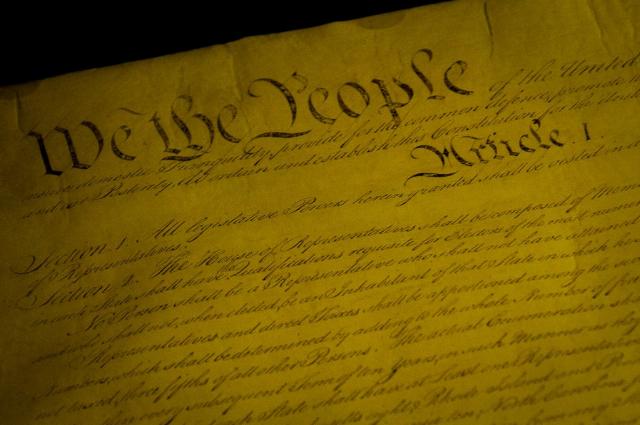The path to communism
The Supreme Court held that the minimum wage law was constitutional because it reasonably regulated contracts to protect the health and welfare of workers.
This opened the door to regulate all economic activity, on the grounds of health and welfare. It was Madison who said he saw nothing in the constitution that allowed the government to provide welfare. “Charity is no part of the legislative duty of government. It would puzzle any gentleman to lay his finger on any part of the Constitution which would authorize the government to interpose in the relief of… sufferers.”
Notwithstanding that regulating economic activity has been ruled constitutional, it seems that legislators have the opportunity to abide by the Madison principle. Meaning that just because the barn door is open doesn’t mean you have to run rampantly through it, at least if you believe in the intent of the Founders when they crafted the abridgement of contracts clause.
Yes, we are long down that road.
While it is pretty clear legislators are mostly owned by lobbyists, they still have the opportunity to please their lobbyists and yet stay within the Founders’ construct.
I once sat on the budget committee of a small town in Oregon. An item came up to assess a motel tax, a room tax, for the purpose of promoting tourism. I said, hey, this is not the business of government, if the motel owners want to promote tourism they should be and are free to do so.
The other eleven members of the committee, most of them businessmen, rose up in a roar to tell me that promotion of tourism was well within the business of government.
I said, well I’m going to vote against this item in the budget. I was then apprised that the budget was not a line item yes or no, rather a whole or none. I said then I vote for none.
That was my last year on the budget committee.
The decision of the Supreme Court to allow regulation of all economic activity probably nullified the entire Constitution of the United States.

Image: Josh Hallett
FOLLOW US ON
Recent Articles
- Katy Perry, Astronautesse and Unifying Force
- Small Business and Cybersecurity
- No One Is Above the Law—Including Letitia James
- Ready for Your Home to Become a Government School?
- Iran and the Failure of Collective Security
- Pam Bondi and the Genesis of Black Lives Matter
- Bill Maher Dines with Trump
- A ‘Hands Off’ Revealed Lots Of Anger But Not Much Coherent Thought
- Trump’s National Security Emergency Investigation Into Election Fraud Is Ongoing
- The Left’s Class Action Coup Against Immigration Law
Blog Posts
- The erasure of easter
- Red states rising
- Senator Van Hollen should get some tips from Bukele about keeping Baltimore safe
- Not on my bingo card: Conservatives, or at least non-leftists, are coming close to winning elections in California
- Europe, Canada crossing a communist Rubicon from which they cannot return?
- What the Democrat party’s heroes say about them
- Editor for The Guardian whines about Muslim convicts facing ‘disproportionate’ force while incarcerated in English prisons
- Did Letitia James commit mortgage fraud?
- JD Vance says what needs to be said about illegal aliens and due process
- Karmelo Anthony’s family adds a new ride to list of luxuries they’re buying after raking in hundreds of thousands of dollars under pretense of ‘legal defense’
- Trump’s historic Holy Week message ignites Christian praise, secular backlash
- Who cares what Janet Yellen has to say?
- Cubism is stupid
- Islamist incursions into East Plano, TX
- What can we give Denmark for Greenland?






